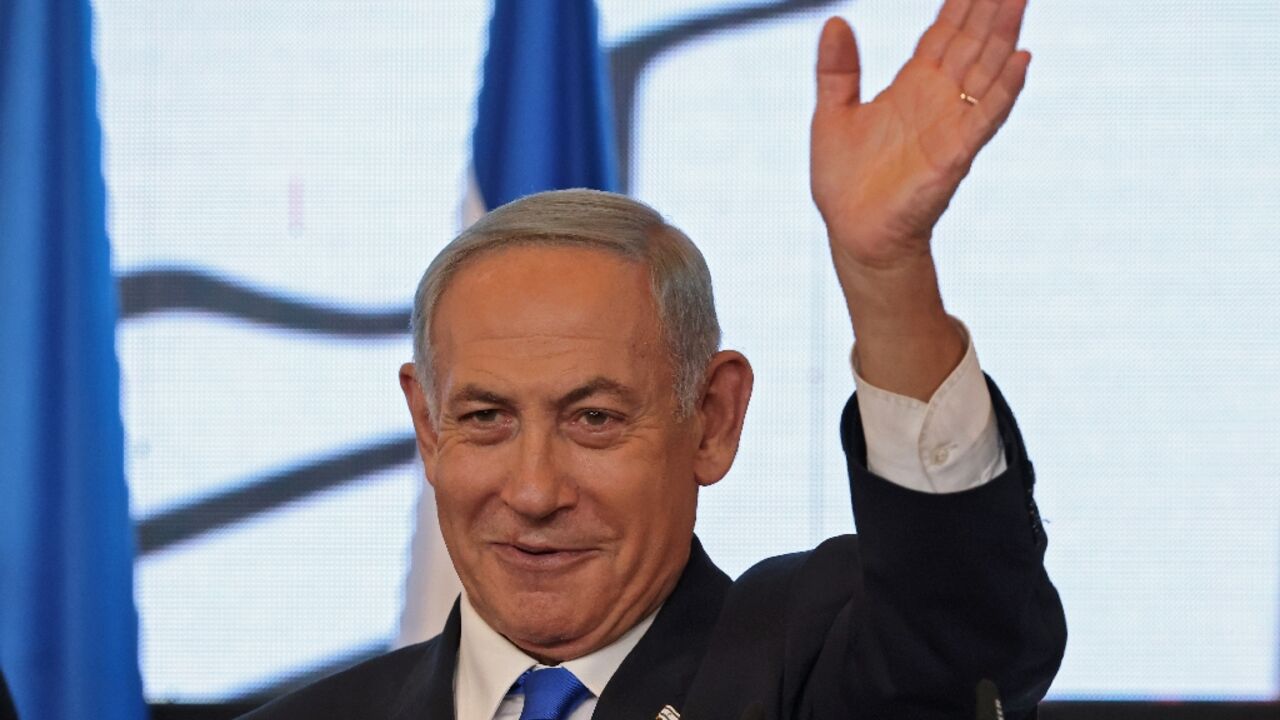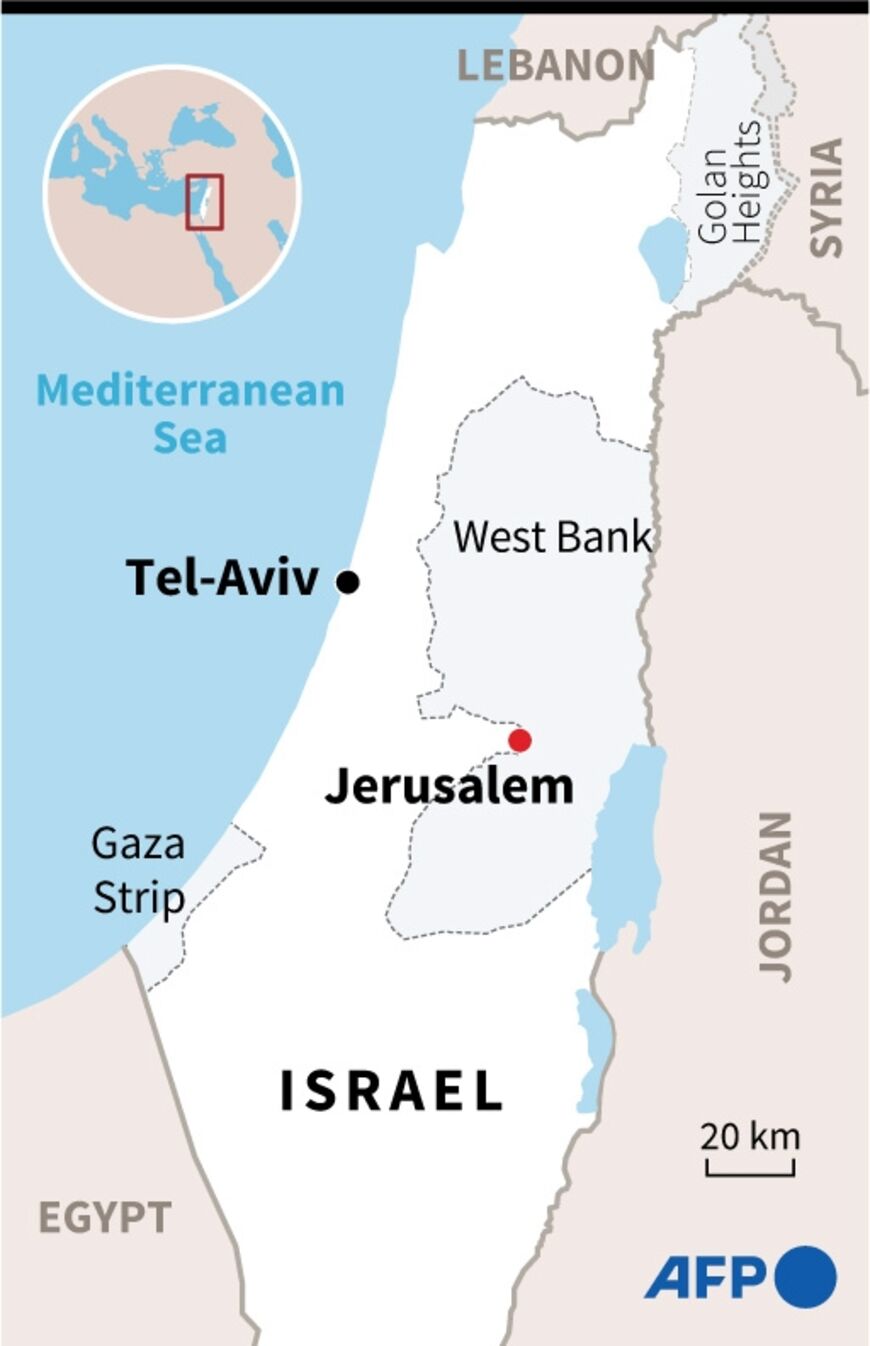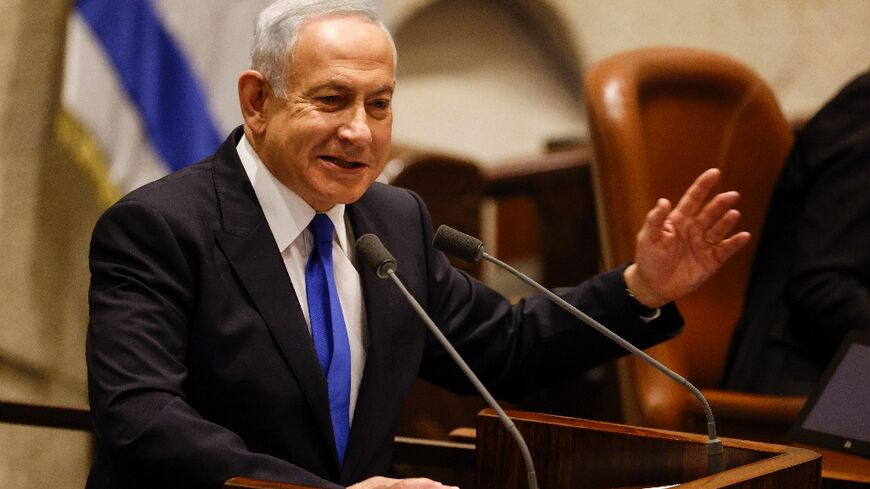Right-wing Israeli government sparks fear of Palestinian escalation

Israel's Benjamin Netanyahu has formed a coalition government but concerns are growing at what power he will exercise over his far-right allies, as violence surges in the occupied West Bank.
The incoming government, which veteran hawk Netanyahu announced he had formed late Wednesday, is expected to be the most right-wing in Israel's history.
It has sparked fears of military escalation in the West Bank amid the worst violence in the Palestinian territory for nearly 20 years.
Netanyahu's Likud party secured the mandate to form a government in the November 1 election, with backing from ultra-Orthodox Jewish parties and Religious Zionism, an extreme-right alliance of minor parties.
Leading voices within the new coalition will include Bezalel Smotrich and Itamar Ben Gvir, two leaders of the Religious Zionism bloc who occupy the extremity of Israel's political right.
Both live in Israeli settlements inside the West Bank, and will respectively take charge of settlement policy and national security.
At least three senior Western diplomats have told AFP they are concerned about the security impact of Ben Gvir's role within the government.
- 'Escalation' -
Ben Gvir's post as national security minister will include responsibility for Israel's police, which includes the border guard who, along with the Israeli army, operate inside the West Bank.
In recent weeks Israel's press has highlighted the risk of having "two" separate armies in the West Bank, with the army on one side and the border guard on the other.
But former Israeli general Amir Avivi, who now runs a network for former security officials, believes the command structure of Israel's forces will not be threatened.
"I don't see any scenario in which Ben Gvir will lead border guard operations" in the West Bank, he said.
However, Palestinian analyst Khaldoun Barghouti said the question was not about the structure of Israel's security forces -- but rather Israel's policies on settlements and annexations of Palestinian territories in the West Bank.
"This Israeli government will lead to an escalation, because the position of Ben Gvir and Smotrich will destroy the possibility of a Palestinian state," he said.
At least 150 Palestinians and 26 Israelis have been killed this year across Israel and the West Bank, including Israeli-annexed east Jerusalem.
A further 49 Palestinians were killed during three days of fighting between Gaza militants and Israel in August.
According to United Nations data, 2022 has been the deadliest year since the 2002-2005 Palestinian uprising, known as the Second Intifada.
- 'Third intifada' fear -
More than 475,000 Israeli settlers live in the occupied West Bank, and the UN warns their presence threatens the viability of a two-state solution to the decades-long conflict.
Smotrich has already signposted an intention to legalise a number of "wildcat" settlements that are not currently recognised by Israel.
Washington, Israel's foremost ally, said it will "unequivocally oppose" moves to expand settlements, annex areas of the West Bank or disrupt the status quo of holy sites, Secretary of State Antony Blinken warned.
A point of frequent tension in annexed east Jerusalem is the Al-Aqsa Mosque compound, Islam's third holiest site, known to Jews as the Temple Mount, Judaism's holiest place.
Under a historical status quo, non-Muslims can visit the sanctuary but not pray there.
"If Ben Gvir manages to convince Netanyahu, or orders the police to change the behaviour of Israeli citizens on the Temple Mount, it will lead to a third intifada," outgoing public security minister Omer Bar-Lev recently warned.
In May 2021, tensions in Jerusalem, and particularly at the Al-Aqsa compound, boiled over.
Hamas, the Islamist movement which controls the coastal Gaza Strip, launched salvoes of rockets from the enclave toward Israel, resulting in a deadly 11-day war.
The group has described as "provocations" several visits by Ben Gvir to the compound during the past year.
"I don't see Ben Gvir doing something (about the Al-Aqsa compound) without the approval of Netanyahu and the security cabinet," said Amos Yadlin, Israel's former military intelligence chief.
This is particularly true as the change of the status quo at the Al-Aqsa compound or further flare-ups risk regional repercussions, at a time when Israel is hoping to build formal ties with Saudi Arabia, as it did with the UAE and Bahrain under the 2020 Abraham Accords.
According to Yadlin, the only factors that could impact the normalisation deals are tensions at Al-Aqsa and "clashes -- by which I mean bloodshed".










